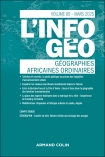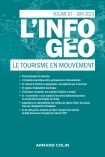
L'INFORMATION GÉOGRAPHIQUE (1/2025)
Pour acheter ce numéro, contactez-nous
Recevez les numéros de l'année en cours et accédez à l'intégralité des articles en ligne.
La contribution questionne la complexité des spatialités africaines contemporaines à travers la mise au jour d’un réseau de marchés mondialisés depuis la Tunisie. En effet, sur des bases articulant des contextes locaux d’opportunités et des dynamiques mobilitaires, il s’agit de restituer le processus de connexion au monde – et aux exportations chinoises en particulier – d’individus et de lieux en situation de marginalité sociale, économique et spatiale. Au-delà de ces résultats, l’article cherche à en restituer la fabrique à travers la pratique d’un terrain en réseau. Cette approche méthodologique s’est nourrie de la complexité de l’espace relationnel observé qui a encouragé des expérimentations et des adaptations. Cependant, travailler ces réseaux marchands labiles aux pratiques de contournement complexes, c’est aussi se laisser surprendre par les opportunités du terrain. Dans les espaces discrets de la mondialisation, la donnée à construire se présente parfois au géographe malgré lui.
This contribution examines the complexity of contemporary African spatialities by uncovering a network of globalised marketplaces from Tunisia. Based on local contexts of opportunity and dynamics of mobility, the aim is to describe the process of connecting to the world - and to Chinese exports in particular - of individuals and places in situations of social, economic and spatial marginality. Beyond these results, the paper seeks to reconstruct the process through the practice of a networked fieldwork. This methodological approach was fuelled by the complexity of the relational space observed, which encouraged experimentation and adaptation. However, working with these labile commercial networks, with their complex bypass practices, also means allowing oneself to be surprised by opportunities in the field. In the inconspicuous spaces of globalisation, the data to be constructed sometimes presents itself to the geographer in spite of himself.

